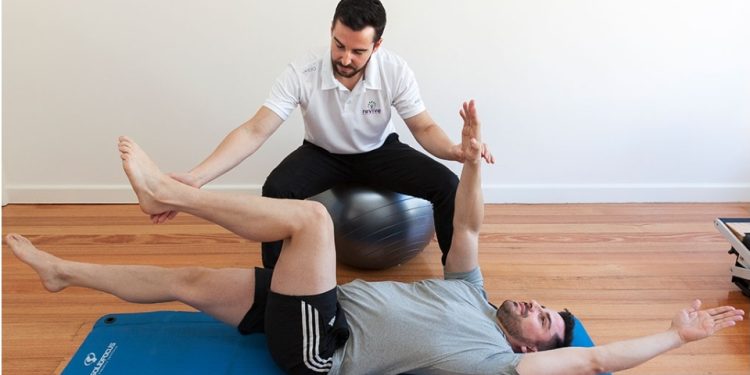Clinical Pilates is a specialized form of exercise that combines elements of traditional Pilates with the principles of rehabilitation. It is designed to be a holistic approach to both rehabilitation and fitness, focusing on improving overall body strength, flexibility, and alignment.
One of the key aspects of Clinical Pilates is its emphasis on core strength and stability. The core muscles, which include the abdominals, back, and pelvic floor, play a crucial role in providing support and stability to the spine and pelvis. By engaging in targeted exercises, such as those advocated by the Aligh Health Collective, individuals can effectively activate and fortify core muscles, leading to improved posture, reduced back pain, and enhanced overall stability.
Clinical Pilates also places a strong emphasis on postural alignment. Poor posture can lead to a wide range of problems, including back and neck pain, muscle imbalances, and decreased range of motion. By focusing on correct alignment during exercises, Clinical Pilates helps individuals develop awareness of their posture and make the necessary adjustments to maintain a more aligned and balanced body. This, in turn, can lead to improved movement efficiency, reduced risk of injury, and increased overall fitness and well-being.
Enhancing Core Strength and Stability through Clinical Pilates
A strong and stable core is essential for optimal movement and overall fitness. Clinical Pilates, a specialized form of Pilates focused on rehabilitation and exercise, offers a holistic approach to enhancing core strength and stability. Through a series of controlled and precise movements, Clinical Pilates targets the deep muscles of the core, including the abdominals, back, and pelvic floor, to build strength and improve stability.
One of the key principles of Clinical Pilates is the activation of the deep core muscles, often referred to as the “powerhouse.” By engaging these muscles, individuals can develop a strong foundation that supports all movements and activities. The exercises in Clinical Pilates are designed to challenge and strengthen the core muscles progressively, allowing individuals to develop stability and control. This not only improves physical performance and athletic ability but also helps to prevent injuries by providing support and stability to the spine and surrounding structures.
Furthermore, a strong core is crucial for maintaining good posture and alignment, which can reduce the risk of developing musculoskeletal issues and enhance overall body mechanics. So, by incorporating Clinical Pilates into your fitness routine, you can effectively enhance core strength and stability, leading to improved body strength, balance, and coordination.
Improving Posture and Alignment with Clinical Pilates
Clinical Pilates is a proven method that can help improve posture and alignment. By focusing on the core muscles and promoting proper spinal alignment, it can lead to significant improvements in overall posture. This is particularly beneficial for individuals who spend long hours sitting or have poor posture habits.
One of the key aspects of Clinical Pilates is its focus on addressing muscle imbalances. Through targeted exercises and stretches, it helps to strengthen weak muscles and release tension in tight muscles, creating a more balanced and aligned body. This not only improves posture but also reduces the risk of developing musculoskeletal imbalances and associated pain or discomfort.
Additionally, Clinical Pilates promotes body awareness, helping individuals to develop a better understanding of their own posture and alignment and make necessary adjustments in their daily activities. Overall, Clinical Pilates offers a holistic approach to improving posture and alignment, resulting in noticeable improvements in both appearance and overall physical well-being.
Rehabilitation and Injury Prevention: The Role of Clinical Pilates
Clinical Pilates has emerged as an effective method for rehabilitation and injury prevention. By combining specific exercises with controlled movements, it helps individuals regain strength and mobility after an injury or surgery. The focus on core stability and postural alignment helps to improve overall body mechanics, reducing the risk of future injuries.
The key role of Clinical Pilates in rehabilitation lies in its ability to target specific muscle groups and address imbalances in the body. Through a series of exercises, patients can strengthen weak muscles, enhance flexibility, and improve joint stability. This not only aids in the recovery process but also acts as a preventive measure against future injuries. By addressing underlying issues and promoting proper movement patterns, Clinical Pilates helps individuals build resilience in their bodies, ensuring a reduced likelihood of reinjury.
Is Clinical Pilates suitable for everyone?
Clinical Pilates can be beneficial for individuals of all fitness levels, ages, and abilities. However, it’s essential to consult with a qualified instructor or healthcare professional before starting Clinical Pilates, especially if you have any pre-existing medical conditions or injuries.
How often should I do Clinical Pilates to see results?
The frequency of Clinical Pilates sessions can vary depending on individual goals, fitness level, and availability. Generally, starting with 1-2 sessions per week is recommended to see noticeable improvements in strength, flexibility, and posture. Consistency and adherence to a well-rounded exercise routine are key factors in achieving desired results.
Can Clinical Pilates help with chronic pain conditions?
Clinical Pilates may provide relief for individuals suffering from chronic pain conditions, such as lower back pain or neck pain. By focusing on core strength, stability, and postural alignment, Clinical Pilates can help alleviate muscle imbalances and improve overall body mechanics, potentially reducing pain and discomfort. However, it’s essential to work with a qualified instructor who can tailor the exercises to your specific needs and limitations.
What equipment is typically used in Clinical Pilates sessions?
Clinical Pilates sessions may incorporate various equipment, including reformers, stability balls, resistance bands, and foam rollers. These props can add resistance, support, and challenge to the exercises, enhancing the effectiveness of the workout and targeting specific muscle groups. The choice of equipment used depends on individual goals, abilities, and the guidance of the instructor.
Can Clinical Pilates help improve athletic performance?
Yes, Clinical Pilates can enhance athletic performance by improving core strength, stability, and overall body alignment. Many athletes incorporate Clinical Pilates into their training regimen to enhance their physical conditioning and reduce the risk of injury.


 Home
Home









